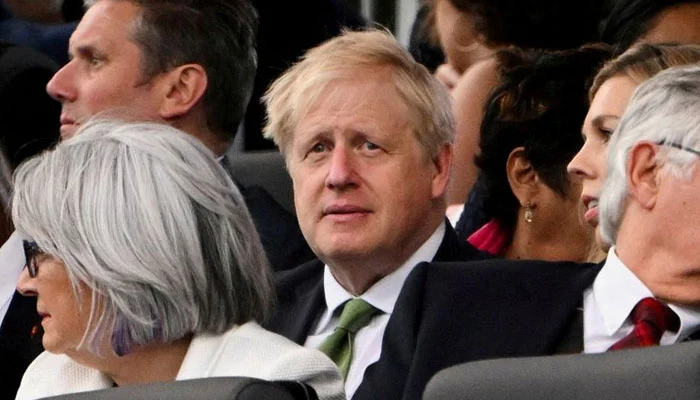LONDON, June 06(ABC): Prime Minister Boris Johnson will face a confidence vote later on Monday, after a growing number of lawmakers in the governing Conservative Party questioned the British leader’s flagging authority over the “partygate” scandal.
Johnson, appointed prime minister in 2019, has been under growing pressure, unable to move on from a report that documented alcohol-fuelled parties at the heart of power when Britain was under strict lockdowns to tackle COVID-19.
In a searing attack on the once seemingly unassailable Johnson, Jesse Norman, a loyalist who served as a junior minister in the finance ministry between 2019 and 2021, said the prime minister staying in power insulted both the electorate and the party.
He is just one of several Conservative lawmakers who have voiced concern over whether Johnson, 57, has lost his authority to govern Britain, which is facing the risk of recession, rising prices and strike-inflicted travel chaos in the capital London.
“The threshold of 15% of the parliamentary party seeking a vote of confidence in the leader of the Conservative Party has been exceeded,” Graham Brady, chairman of the party’s 1922 Committee that represents rank-and-file Conservative lawmakers, wrote in a note.
Brady said a vote would be held between 6pm and 8pm (1700-1900 GMT) on Monday.
“The votes will be counted immediately afterwards. An announcement will be made at a time to be advised,” Brady said.
A spokesperson for Johnson’s Downing Street office said the vote was “a chance to end months of speculation and allow the government to draw a line and move on, delivering on the people’s priorities”.
“The PM welcomes the opportunity to make his case to MPs (members of parliament) and will remind them that when they’re united and focused on the issues that matter to voters there is no more formidable political force.”
Mounting anger
A majority of Conservative lawmakers — or 180 — would have to vote against Johnson for him to be removed – a level some Conservatives say might be difficult to reach. If passed, there would then be a leadership contest to decide his replacement.
Since the release of the damning report into the so-called “partygate” scandal, which listed fights and alcohol-induced vomiting at lockdown-breaking parties in Downing Street, Johnson and his government had urged lawmakers to move on.
But many returned to their constituencies, or voting regions, last week to find a chorus of complaints over Johnson’s behaviour. The prime minister was also jeered and booed by the public at Platinum Jubilee celebrations for the Queen at the weekend, although there were some cheers for him.
Steve Barclay, who was appointed the chief of staff at Downing Street after reports of the parties, urged lawmakers not to “waste the remaining half of the parliament on distractions over leadership”.
“If we continually divert our direction as a Conservative Party — and by extension the government and the country — into a protracted leadership debate, we will be sending out the opposite message,” he wrote on the Conservative Home website.
But in perhaps the biggest sign that criticism of Johnson has spread beyond a vocal group of so-called rebels, Norman listed his complaints of the British leader’s behaviour and also of what he described as a lack of “mission”.

